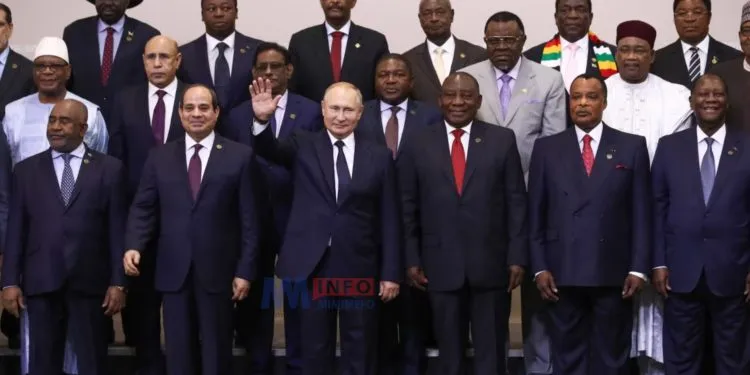Moscow is moving towards establishing visa-free travel agreements with nine countries in Africa and the Middle East, according to Alexei Klimov, head of the Consular Department of Russian diplomacy. This initiative is part of Russia’s broader strategy to strengthen ties with African nations.
Klimov stated, “The timeline for finalising the agreements remains uncertain, as negotiations with partner countries are progressing at different stages.” He assured that updates on advancements in this area would be shared once they are formalised in documented bilateral agreements.
Previously, the Russian Foreign Ministry announced that Russia was in talks to simplify visa regimes with several African nations, including Zimbabwe. Moscow already has visa-free regimes with Angola, Mozambique, Malawi, São Tomé and Príncipe, Tunisia, and Morocco.
Russia’s diplomatic efforts in Africa have been particularly focused on the Sahel region, which has seen a series of coups in recent years. By enhancing travel and diplomatic relations, Russia aims to solidify its influence and foster stronger economic and political partnerships across the continent.
International Reactions
Russia’s increasing involvement in Africa has garnered mixed reactions from the international community.
Many Western countries, particularly the United States and members of the European Union, view Russia’s activities in Africa with suspicion. They are concerned that Russia’s growing influence could destabilise regions, especially in the Sahel, where political instability is already high. There are also worries about Russia’s potential to exploit natural resources and establish military footholds.
China, which has its own significant investments and influence in Africa, is likely monitoring Russia’s moves closely. While there is no overt conflict between the two nations in Africa, there is an underlying competition for influence and resources.
The response from African countries is more varied. Some nations welcome Russia’s involvement as it provides an alternative to Western and Chinese influence, potentially giving them more leverage in negotiations and partnerships. Countries like Zimbabwe, which have faced Western sanctions, see Russia as a valuable ally. However, there are also concerns about the long-term implications of such partnerships, particularly regarding debt and political influence.
Entities like the United Nations and the African Union are focused on the stability and development of the continent. They are cautious about any foreign involvement that could exacerbate conflicts or undermine sovereignty.
Russia’s Projects and Initiatives in Africa
Russia actively engages in various projects and initiatives across Africa, focussing on economic, military, and diplomatic efforts.
Mining and energy projects involve significant participation from Russian state-owned and private companies. For instance, Russian firms are mining bauxite in Guinea, extracting diamonds in Angola, and producing offshore gas in Mozambique. Lukoil, a private Russian energy giant, has projects in Cameroon, Ghana, and Nigeria.
Russia has provided military support and training to several African nations. The Wagner Group, a private military company, has been active in countries like Libya, Central African Republic, and Sudan. This involvement often includes supplying arms and military equipment, as well as deploying mercenaries.
Russia has been strengthening its diplomatic ties through high-profile summits and agreements. 43 African heads of state gathered in Sochi for the first Russia-Africa Summit in 2019, which Russian President Vladimir Putin and Egyptian President Abdel Fattah el-Sisi co-chaired. These summits aim to foster economic and political cooperation.
Russia has been involved in various infrastructure projects, including building nuclear power plants. For example, Rosatom, Russia’s state nuclear corporation, has agreements to construct nuclear power plants in countries like Egypt and Nigeria.
Russia offers scholarships to African students and has established cultural centers in several African countries. These initiatives aim to build long-term relationships and promote Russian culture and language.
These projects and initiatives reflect Russia’s strategic goals in Africa, which include expanding its geopolitical influence, securing access to natural resources, and countering Western dominance on the continent.



